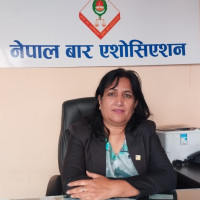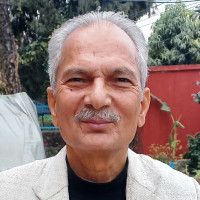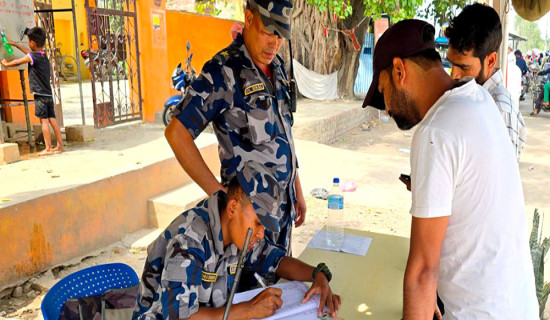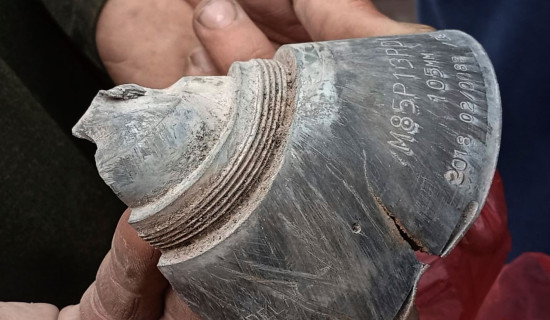- Sunday, 11 May 2025
Our focus is on building road network: Mayor Lama
Of the 85 local levels of Gandaki Province, Manang's Narpa Bhumi Rural Municipality is the only one that has no access to motorable roads. Located near the Chinese border, this rural municipality is a two-day walk from the district headquarters Chame. Narpa Bhumi is considered remote and difficult to reach. But Konjo Tenzing Lama, who was elected chairman of the rural municipality from the Nepali Congress in the 2022 local election, hopes to change that. He wants to develop physical infrastructure and attract tourists to boost the local economy. The Rising Nepal's correspondent Yadu Prasad Bhatta asked him how exactly he planned to do that. Excerpts:
How do you plan to develop this local level that everyone considers super remote?
Everyone does consider us remote. Perhaps that is why the federal and the provincial governments have not noticed us. Since they have not allocated the required budget, the local level has spent its own money to purchase an excavator and a breaker to build roads. Please note that we have dug 14 kilometres of track so far. Since road access is a vital prerequisite to development, we have focused our attention to connecting Narpa Bhumi to the district headquarters by road.
Before we got elected, there were no infrastructures here. There was no state here. But now, we have built ward offices, health posts, schools and border outposts. We have to consider this development.
You say that tourism and medicinal herbs hold the key to Narpa Bhumi's development. How do you plan to utilise them?
We plan to cultivate medicinal herbs commercially by collaborating with various organisations.
Manang is known as the district of Yarsagumba. To boost the locals' income, we want there to be reserved periods when only Narpa Bhumi residents are allowed to collect the caterpillar fungus. But that has not happened yet. We are also working to promote our Jimbu (Nepalese aromatic leaf garlic) inside and outside the nation to drive up demand.
In the tourism sector, we have prepared profiles of our villages and have been disseminating them through various channels to attract visitors. We are doing all we can to promote Narphu Trail, Naar Village, Phu Village, Satya Monastery, Kangla Pass, Tashilakang Monastery, Kangla Pond and other scenic sites. We are determined to make Narpa Bhumi a must-visit tourism destination.
Have you fulfilled your election promises?
The people want good governance. But we have not been able to work at the rate and capacity desired due to a lack of needed employees. We do not even have a full-capacity chief administrative officer.
Narpa Bhumi is a sparsely populated local level in a sparsely populated district. We do not have to cater to many service-seekers. The rural municipality also has its own office and has a staff residence for employees to live in. The civil servants who come here can work with ease.
We also operate mobile camps to deliver services to our residents at their doorsteps.
Phu Village is close to the Tibet Autonomous Region of China. How do you view the border here?
Phu is an international border with China. But, we do not have a border pillar there. Discussions are ongoing about setting up a border out post (BOP) to protect the border at Phu. We are helping look for the seven to 10 Ropanis of land needed to build the BOP and other necessary infrastructure. We have informed the Ministry of Home Affairs and are in talks with the Home Minister. A border pillar should be erected here before something goes wrong. We believe in securing our international border and have been working for it. But the state must also pay attention to this.
The remoteness of the rural municipality has been preventing people from accessing health services, hasn't it?
The only way to transport the sick to the hospital is by helicopter. There are no other means of transportation available. But our health post is capable of providing first aid and treating small ailments.
One thing I would like to inform everyone through you is that we have seen our river get polluted by the waste tourists throw there. So we are also working to clean it.
Additionally, we have organised programmes to make people aware about sanitation and personal hygiene.
How did you feel after reading this news?









-original-thumb.jpg)







